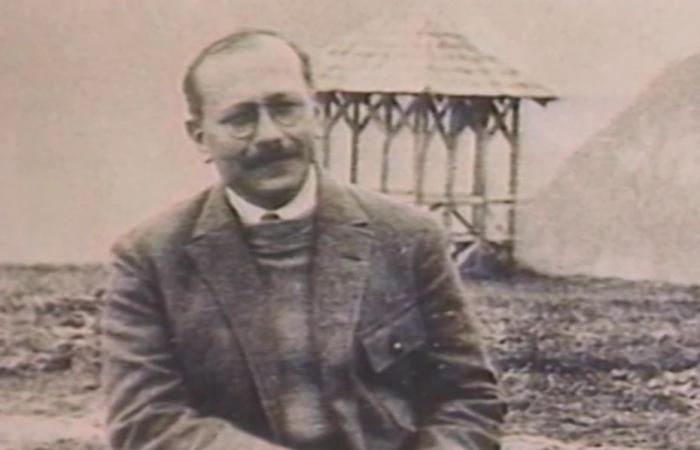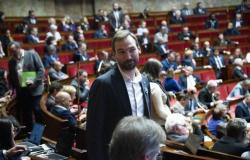The historian and resistance fighter Marc Bloch will enter the Pantheon. The announcement was made by Emmanuel Macron in Strasbourg this Saturday, November 23. Marc Bloch's grave is located in Creuse at the Bourg d'Hem cemetery, where he bought a family home.
The essentials of the day: our exclusive selection
Every day, our editorial team reserves the best regional news for you. A selection just for you, to stay in touch with your regions.
France Télévisions uses your email address to send you the newsletter “Today’s essentials: our exclusive selection”. You can unsubscribe at any time via the link at the bottom of this newsletter. Our privacy policy
“Stinging lucidity”, “physical courage”, it is with these words that Emmanuel Macron saluted the memory of Marc Bloch this Saturday, November 23 in Strasbourg. The historian and resistance fighter, from an Alsatian Jewish family, became one of the leaders of the Resistance at the time of the Second World War. He was captured by the Germans, imprisoned, tortured and shot by the Gestapo in June 1944.
Marc Bloch, historian, hero of the Resistance, killed by the Gestapo, will enter the Pantheon
•
© FTV
Marc Bloch also has ties to Creuse. The history professor, father of six children, had a family home in the village of Hem where he has been buried in the cemetery since 1977. It was also in Creuse that Marc Bloch wrote one of his major books, “L 'strange defeat', in 1940.
The announcement of the upcoming pantheonization of Marc Bloch caused the mayor of the town of Hem to react:
“Last year we received a letter from Daniel Bloch who is his surviving son, who is 98 years old and who lives in Spain. And Daniel Bloch, in his letter, therefore asked the mayor to intervene with the Élysée to pantheonize his dad. I sent it to the Élysée, to the Cabinet, who kindly replied that they were taking note of this request.”, explains Robert Deschamps, mayor of the town of Hem.
The grave of the resistance fighter and history professor Marc Bloch is in the Hem cemetery in Creuse
•
© Marielle Camp
Marc Bloch, born in Lyon in 1886, grew up in an Alsatian Jewish family. He followed brilliant studies and became a normalien and a history professor. At the age of 28, during the 1914/18 war, he fought in the trenches, returned wounded and served as an intelligence agent. Subsequently, he will teach medieval history at the University of Strasbourg.
When the Second World War broke out, at the age of 53, Marc Bloch once again enlisted in the army to fight the Germans. Once France was defeated, due to the anti-Semitic laws of the Vichy regime, he was deprived of his status as a civil servant. Marc Bloch became a resistance fighter until his arrest in 1944. Interned, like Jean Moulin, in Montluc prison, he was tortured for several days before being executed by the Gestapo on June 16.






